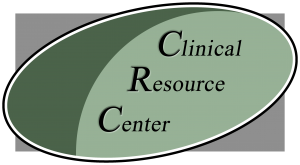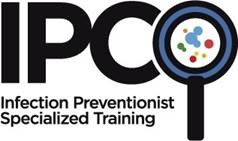Quality Topic of the Month:
July: Coming Soon THCA EF Clinical Resource Center; a website for all your long-term care education and clinical needs

This article highlights the NEW FREE Clinical Resource that THCA is making available to all Members. The THCA Clinical Resource Center is a website for all of your long-term care education and clinical needs; it contains Care Area and Training Modules. Each care area module is organized using a framework that provides tools, guidelines, related Federal and State regulations and additional resources for learning. Read More
Registration is limited. The first opportunity to register as a user for the site is during the Vendor Fair at the THCA Summer Meeting.

AHCA is ready to help you meet the new Infection Preventionist specialized training requirement finalized by CMS in the Reform of Requirements of Participation for Long Term Care Facilities. The course provides specialized training for healthcare professionals who seek to serve as Infection Preventionists. Through this Infection Preventionist Specialized Training (IPCO) course, individuals will be specially trained to effectively implement and manage an Infection Prevention and Control Program at their nursing facility.
The course is an online, self-study program with 23 hours of training. It includes online lectures, case studies and interactive components taught by an array of experts from around the country.
AHCA’s Infection Preventionist Specialized Training (IPCO) training content includes:
- A thorough explanation of the impact of infections on the people who live, work and visit nursing centers.
- Definitions of essential components of an effective infection prevention and control program.
- Identification and management of common infections.
- Strategies to prevent the spread of infections.
- Identification and description of the steps necessary for infection surveillance, antibiotic stewardship, investigating, tracking and reporting infections
- Successful implementation strategies.
In addition the training addresses both clinical and organizational systems, processes and cultural aspects of infection prevention and control which are fundamental to effectively leading and administering a nursing facilities Infection Prevention & Control program.
Course completion must occur within 9 months of the date the registrant starts the program. Participants must complete all training modules and successfully pass quizzes and final test with a grade of 80 or above to receive a certificate of completion from AHCA, valid for 3 years. 23 ANCC contact hours are available for completion of this program.
The course is open to AHCA/NCAL members for $450 and non-members for $650. Group purchase with discount structure is available for groups of 25 or more. There are no refunds and no transfers.
This activity has been planned & implemented in accordance with the accreditation requirements & policies of the American Nurses Credentialing Center’s Commission on Accreditation (ANCC) through the joint providership of the University of Nebraska Medical Center College of Nursing Continuing Nursing Education (UNMC CON CNE) (provider) and American Health Care Association. UNMC CON CNE is accredited with distinction as a provider of continuing nursing education by the ANCC.
For more information on the Infection Preventionist specialized training, including renewal details click here.
“The Quality Initiative Series – Succeeding in the Midst of Change”
The AHCA Quality team is creating a series of FREE education Webinars which covers the best practices to help members with many of the new regulatory, payment or public reporting changes. The series is designed to provide critical support to members. You can register for the first webinar here.
The schedule is as follows:
September 20, 2017
7 – Customer Satisfaction/Experience
November 15, 2017
8 – Hospital Admissions in Long Stay Settings
Building Prevention into Every Day Practice: Framework for Successful Clinical Outcomes Series – Part 12 of 13
This is part of a series featuring one element of the Building Prevention into Every Day Practice: Framework for Successful Clinical Outcomes. Success in achieving positive resident/patient outcomes is even more critical now than ever before. The link between quality and payment in long term and post-acute care is growing stronger, as evidenced by the SNF Value Based Purchasing Program (VBP), Improving Post-Acute Care Transformation (IMPACT) Act, SNF Quality Reporting Program (QRP) and more.
In addition, regulatory activity is intensifying through focused surveys on adverse events, dementia care and MDS. The Five-Star Rating system and Nursing Home Compare have been revised and will add items in the future as it broadens public reporting and transparency. Most importantly, consumers expect and deserve high quality care.
The entire framework outlines key elements from both an organizational and clinical nature that are critical to successful clinical and organizational outcomes. Positively, these elements reflect common denominators that cross multiple care situations. Therefore, instead of being yet another initiative or single focused project to achieve just one outcome, it is a way of acting, thinking and being that will benefit multiple areas across an organization. Each element is addressed in detail throughout the framework.
This month THCA is featuring the element of Clinical Foundation: Timely Provision of Necessary Care
Key Takeaways: Timely Provision of Necessary Care
- Timely availability of resources is essential for the staff and practitioners to be able to deliver timely and effective care.
- Our centers can improve the timeliness of care by scrutinizing existing systems and processes to make them more efficient.
- Commit to a culture of safety.
Probing Questions for Team Reflection and Discussion:
- Do we have the right resources available at the right time? How do we know?
- How do we prevent unnecessary delays from occurring?
- How do we know what is necessary and/or desired care for each individual?
- How do our staff that are not involved in direct care help the staff providing care in every way possible to be more efficient and effective?
Visit the AHCA Clinical Practice website to learn more about the element of “Clinical Foundation: Timely Provision of Necessary Care” and answers to these key questions:
What does this mean? Why is this important? What are some examples? What is my part (as an individual employee, manager or practitioner)? What can my organization do?
Start somewhere, pick one element and work through it with your team.
Enjoy the journey through the framework!

